Shut down Milwaukee streetcar? Wisconsin Sen. Ron Johnson says 'Yes'

Sen. Johnson says Milwaukee should shut down streetcar
U.S. Senator Ron Johnson is calling on Milwaukee to shut down the city's streetcar – and he is taking action that could eliminate a $68 million payback for doing so.
MILWAUKEE - U.S. Sen. Ron Johnson (R-Wisconsin) is calling on the city of Milwaukee to shut down The Hop – the city's streetcar – and he is taking action in Washington, D.C. that could eliminate a $68 million payback for doing so.
Milwaukee's downtown streetcar is struggling to regain ridership in the wake of the COVID-19 pandemic. In May 2021, The Hop averaged roughly 600 riders per day. That is less than a third of the ridership in the same month in 2019.
"Nobody’s paying to ride. What’s the ridership going to be when people actually have to pay a fare?" asked Sen. Johnson. "It is ridiculous. It needs to end now."
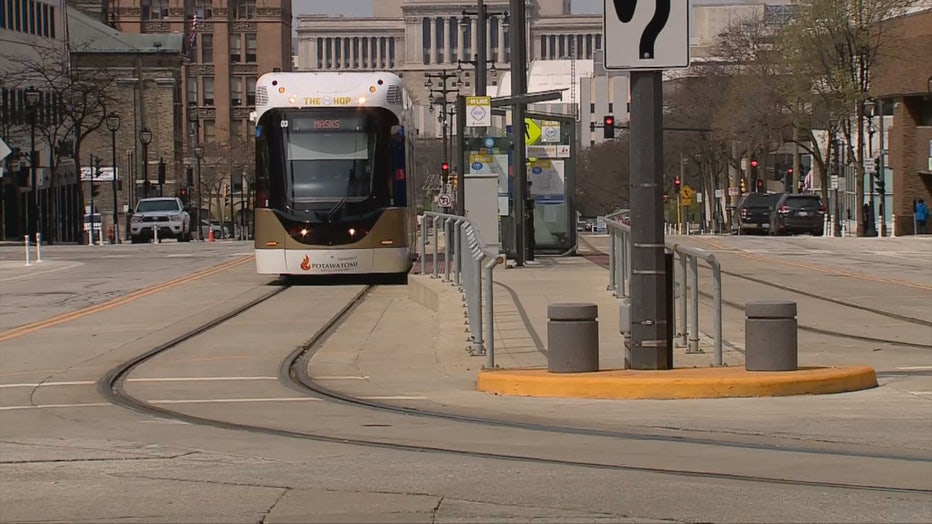
In fall 2020, some Milwaukee Common Council members called for a temporary suspension of the streetcar at the peak of the pandemic. But Public Works Commissioner Jeff Polenske objected.
"There are inherent costs to just shutting down," Polenske said.
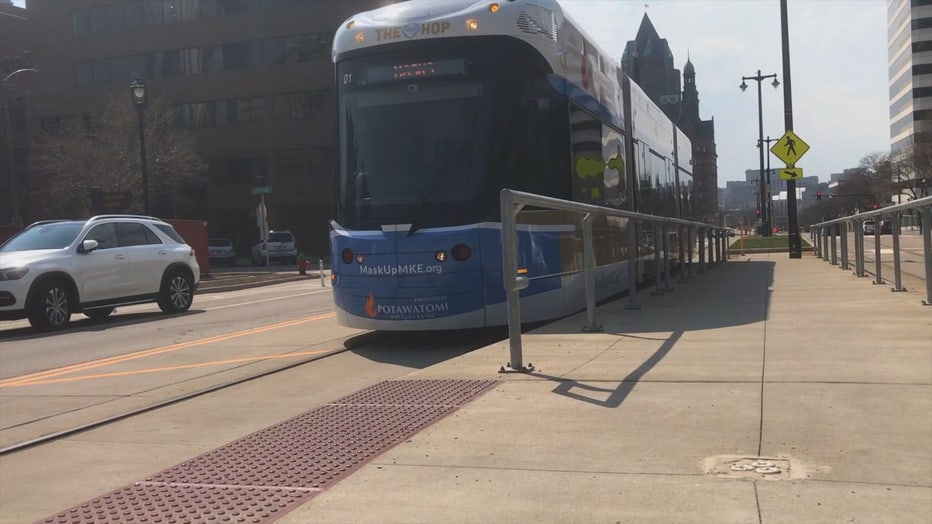
Polenske and others at the Milwaukee DPW warned that doing so could require the city to pay back a $68 million federal grant.
- Alderman Robert Bauman: "Aren’t we legally obligated by the FTA to operate this thing for its useful life?"
- Samir Amin, City Engineer DPW: "Yes."
- Bauman: "So that’s 25 years?"
- Amin: "Yes or more."
- Bauman: "And we’re obligated to come up with the money to run it for 25 years."
- Amin: "Or pay ‘em back the grant."
This week, Sen. Johnson introduced an amendment to a $78 billion transit funding bill that would allow cities like Milwaukee to "uninstall" federally-funded transit projects without having to pay back the grants.
"What I sure don’t want to see is another 25 years of $3 million or $4 million per year operating deficits. That would just be throwing good money after bad," Sen. Johnson said.
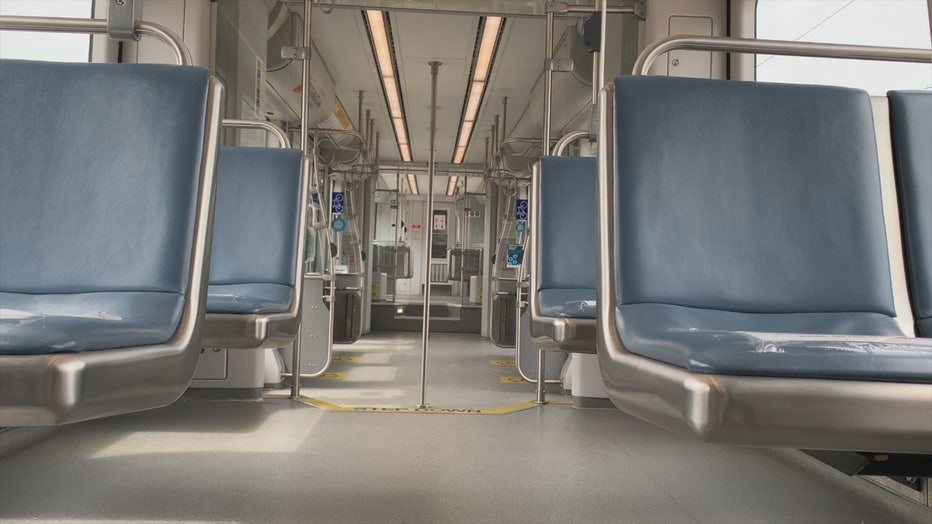
A spokesman for Milwaukee Mayor Tom Barrett said the senator is "promulgating a false narrative about Milwaukee's streetcar" – and that his concern for transit financing is "disingenuous."
Prior to the pandemic, the spokesman said ridership exceeded expectations and contributed to significant development along the route. He called the current ridership struggles "a minor loss in momentum."
"This was a boondoggle to begin with, it’s a boondoggle at the end of it," Sen. Johnson said.
FREE DOWNLOAD: Get breaking news alerts in the FOX6 News app for iOS or Android
Sen. Johnson said talk of expanding the streetcar system would only increase the burden on local taxpayers for years to come.
"Recognize the mistake that was made and close it up," Sen. Johnson said.
Barrett said he is hoping to secure new federal grants to expand the streetcar into neighborhoods north and south of downtown. Also, the city hopes to launch The Hop's new lakefront line in 2022. It is mostly built already but has been held up by delays in The Couture project.
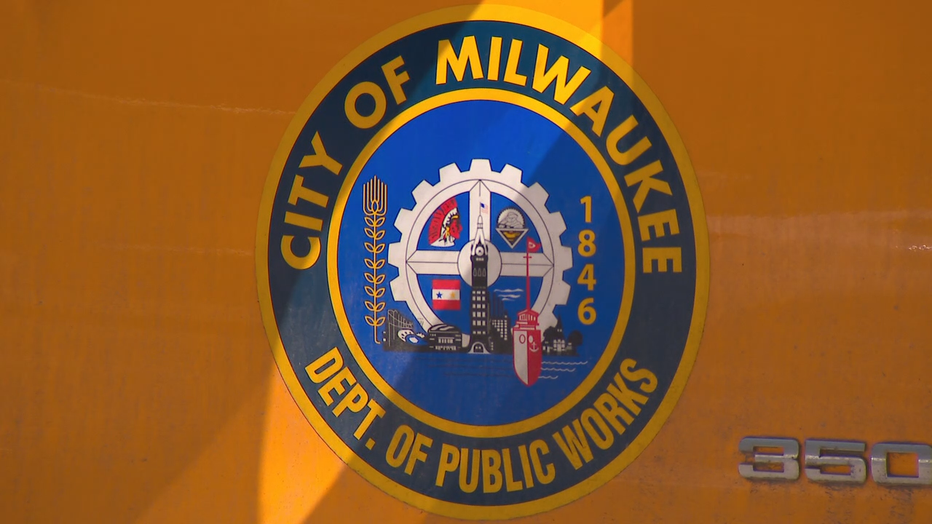
Milwaukee DPW full response to Sen. Johnson
The streetcar’s success
- In The Hop's first full year of operation in 2019 prior to COVID-19, ridership exceeded projections by 16%.
- In The Hop's first full year of operation in 2019, The Hop performed in the upper 1/3 of the 12 modern streetcar systems in the United States based on the following standard performance measures (source: 2019 National Transit Database reporting): passengers per hour; cost per passenger; cost per hour.
- In comparison the bus transit systems in Wisconsin, The Hop exhibited more passengers per revenue hour than any bus transit system in Wisconsin at a comparable cost per passenger (source: 2019 National Transit Database reporting).
- The Hop contributed to significant development along the route. Along the Broadway corridor alone, 7 projects have been initiated or completed including the Underwriter’s Exchange building, BMO Tower, Milwaukee Athletic Club, 250 E Wisconsin remodel, storefront remodels south of the Railway Exchange, the Kinn Hotel and the Huron Building. Furthermore, The Hop was instrumental in the 44 story Couture high-rise development on Milwaukee's Lakefront. These projects are helping to strengthen the tax base along the route, which helps contribute to services throughout the City.
- The Hop is delivering on its promises and, despite a minor loss of momentum resulting from COVID-19 that impacted and all modes of transportation, The Hop is well positioned to continue to deliver the benefits as Milwaukee recovers from the effects of COVID-19 and downtown activity returns to prepandemic conditions.
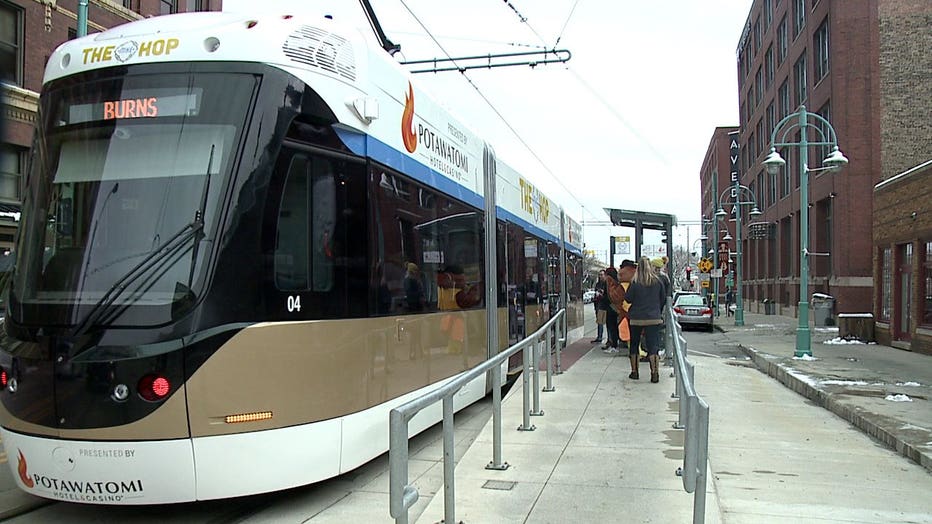
Impacts of Pandemic
- COVID-19, and the corresponding "Safer at Home" directives affected travel demand on all transportation modes including airlines, highways, and transit. With 2 exceptions, all modern streetcar systems that remained in operation to provide transit service for essential trips during COVID-19 experienced comparable ridership decreases. Peer streetcar systems experienced an average decrease of 71%. The Hop experienced a 76% decrease between April 2020 and April 2021 under a reduced service schedule.
- Ridership on The Hop is beginning to rebound as downtown activity gradually returns. Ridership in May 2021 is more than double May 2020.
- Surveys suggest downtown employers will gradually return to the workplace over the summer and fall. The Hop is planning to restore the traditional schedule on August 1, 2021 in anticipation of increased downtown activity and increased travel demand.
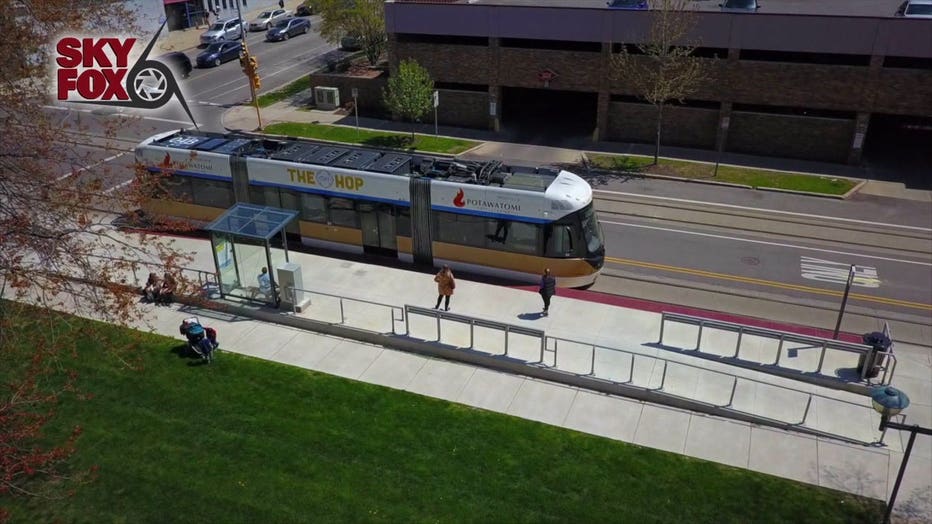
Operational Costs
- There are no transit systems in the United States that make a direct profit and it is misguided to evaluate the effectiveness of a transit system based on this measure. Transit is a municipal service intended to improve the mobility of its citizens, particularly those that do not have access to other forms of transportation. Fiscal benefits of transit, particularly rail-based transit, are realized indirectly by attracting developers, employers, employees, residents, and visitors that contribute to the tax base and general attractiveness of the City.
- Of the 12 modern streetcar systems in the United States, 7 charge fares and recover, on average, 8% of operating costs. While The Hop does not currently charge a fare, The Hop recovers approximately 30% of annual operating costs through sponsorship/advertising and federal grant revenues based on the 2020 operating budget.
- Under State Statute 85.20, The Hop is the only transit system in Wisconsin that is not eligible for state funding under the Wisconsin Urban Mass Transit Operating assistance program. If The Hop were eligible for state funding under this program, approximately 70%-75% of annual operating costs would be recovered through non-City sources.

